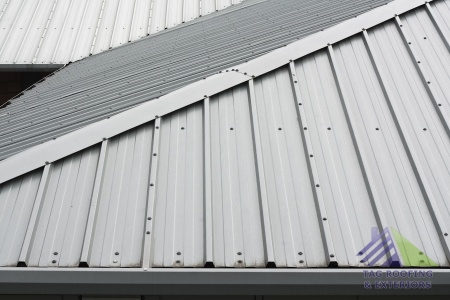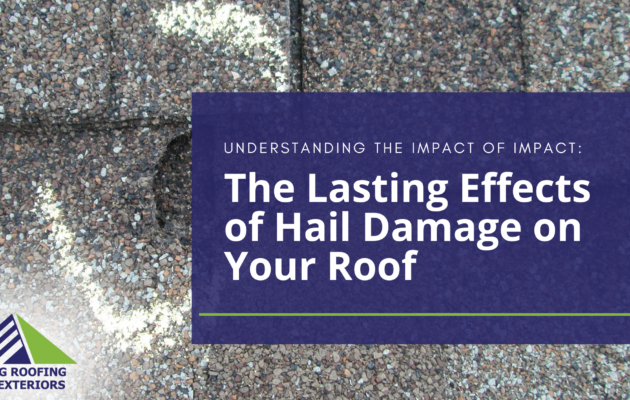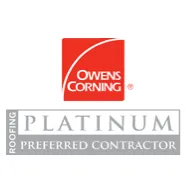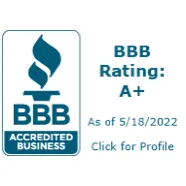How Can I Make My Home More Energy Efficient in the Winter?
Most every homeowner understands the importance of an energy efficient home, both for the environment and their own finances. When it comes to the improvement of a home’s energy efficiency in the winter, however, many homeowners are in the dark. Appliance makers will loudly trumpet the energy efficiency of their products, and it’s true that the installation of new, updated appliances can have a big impact. In terms of the winter, this holds especially true in regards to the furnace. At the same time, a lot contributes to a structure’s energy efficiency, during the winter, or at any time of the year. Major structural elements, including the siding and roofing, for example, have a massive impact. To learn how to achieve a more energy efficient home in Cedar Park, TX or elsewhere, you must first understand the areas where your current situation is lacking.
How Energy Efficient Is Your Home?
If you’ve ever wondered about the energy efficiency of your home, or would like to make improvements, you can perform a do-it-yourself energy audit. A professional audit will, of course, provide more conclusive answers, but it never hurts to pursue a little self-enlightenment. To find areas for improvement, you’ll simply need to review a few different characteristics of your home’s construction.
Air Leaks: A home that loses air loses energy. To review your home’s tendency to lose air, think of any existing drafty areas. Make a list of these, then perform an inspection for air leaks around the following:
- Baseboard Gaps
- Junctures of Ceilings and Walls, and Floors and Walls
- Exterior Areas That Are Junctures of Different Building Materials
- Windows
- Doors
- Plumbing and Lighting Fixtures
- Electrical Outlets and Light switches
Insulation: Of course, insulation has a massive impact on a home’s energy efficiency. What’s less obvious is that insulation has improved tremendously in recent decades. Also, builders will sometimes cut costs through a lack of insulation in the ceiling, or in the attic. To know whether you need more or better insulation, consider whether any room or area of your home feels consistently hot in the summer, or cold in the winter. Also, If your home was built more than 20 years ago and has never had its insulation updated, you should consider the value of this project.
Inspect HVAC Equipment: Appliances consume a great deal of energy. If either your air conditioner or heater has served for 15 years of more, an upgraded device will come with vastly improved energy efficiency.
If you’d like to improve the energy efficiency of your home, there are some easy-to-take actions you can do at your earliest convenience, including:
- Changing Your Air Filters on a Monthly Basis
- Having Your Air Ducts Professionally Cleaned
- Replacing Inefficient Light Bulbs with CFL or LED Varieties
- Scheduling a Professional Energy Audit

A Metal Roof Can Contribute to an Energy Efficient Home All Year Round, Even in the Winter.
When Is Energy Efficiency Important?
At the end of the day, energy efficiency matters all year round. If you feel like your home could use particular help during the winter, however, there’s a good chance that you could make improvements with the maintenance or replacement of your furnace. If you want help in this regard, reach out to a locally-owned, Texas heating company. If you wonder about other ways how you can make your home more energy efficient, consider the following easy strategies.
- Lower Your Thermostat
- Open Curtains During the Day, and Close Them at Night
- Cover Drafty Windows
- Schedule Professional Maintenance for Your Heater
- Turn Down Your Water Heater
- Use LED Holiday Lights
Benefits of an Energy Efficient Roof
Nowadays, there exist energy efficient alternatives for basically every component of a home. The two biggest players in regards to energy efficiency are, not coincidentally, two of your home’s largest structural components: the siding and the roof. These have an even bigger impact in the winter, as people tend to run their heaters for longer periods of time than they do with their ACs in the summer. When the time comes for new siding installation, you can make a drastic improvement through the use of a material like vinyl, steel, or aluminum that’s backed with high-quality foam.
When it comes to roofing, it’s unfortunate that the most popular material in the country, asphalt shingles, is also one of the least energy efficient. There do exist energy efficient options, however, including shake, tile, slate, and metal roofs. Should you have one of these materials installed, you can count on a range of benefits. First of all, you will save money on your monthly bills. Whereas this holds true for any energy efficient improvement, it matters more in regards to your roof. Your home will also stay more comfortable year round, as energy efficient roofing reflects the sun’s heat during the summer, and helps contain the warm air from your heater in the winter. Another winter benefit comes from the prevention of ice dams. An energy efficient roof contains heat better, which means it stays warmer and prevents ice from re-freezing along the roof’s lower edges.
Most Energy Efficient Roof
If you’ve ever asked yourself what roofing material is most beneficial for an energy efficient home, you might feel surprised at the answer. Though there exist compelling arguments for several, metal roofing makes a powerful case for the top spot. Metal is naturally reflective, which helps it divert the worst of the sun’s heat during the summer. This keeps the interior of your home cooler, a fact that leads to less work and energy usage from your air conditioner. As for the winter, metal does a better job protecting the insulation beneath it from damage, which preserves that material’s ability to retain heat.
Metal also stands as a natural air barrier for an energy efficient home, and prevents the loss of warm or cooled air. The construction of metal roofs also results in many fewer seams that any other type of residential roofing, which presents less opportunity for air to escape in the first place. Lastly, metal roofing stands as the ideal type of roofing to support the presence of solar panels. Much of the reason for this comes from metal’s legendary durability and long lifespan. Metal not only supports solar panels more effectively, but since it lasts for 40 years or more, does not require their removal and replacement every 15 years when you need a new roof.
Additional Answers About Energy Efficiency
Are New Homes More Energy Efficient?
New home are absolutely more energy efficient. This occurs because of the great advancements in energy efficiency attained with new construction materials and appliances.
Are Metal Roofs More Energy Efficient?
Yes. Metal is an excellent insulator, reflects the sun’s heat, and presents fewer gaps for the escape of air.
What Is the Most Energy Efficient Roof Color?
The most energy efficient roof color is white, though the natural reflectivity of unpainted metal makes it a highly energy efficient choice as well.
To learn more about an energy efficient home in Cedar Park, TX, and metal roofing in particular, give TAG ROOFING & EXTERIORS a call today at (866) 628-9508.











